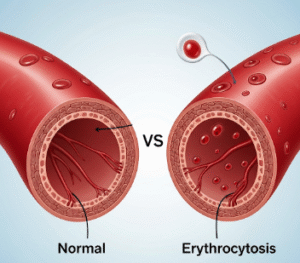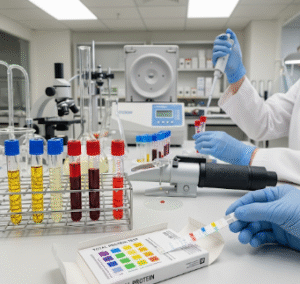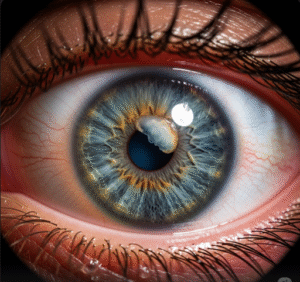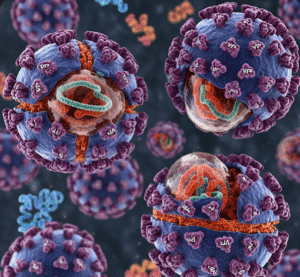Overview
Klüver-Bucy Syndrome (KBS) is a rare neurological disorder characterized by a distinctive cluster of behavioral and cognitive abnormalities resulting from bilateral damage to the medial temporal lobes, particularly the amygdala and adjacent areas. First identified in monkeys by Heinrich Klüver and Paul Bucy, the syndrome presents in humans primarily due to brain injuries such as trauma, infections, or neurodegenerative diseases. In Korea, advanced neurology and neuropsychiatry centers offer comprehensive evaluation, symptomatic treatment, and supportive care for individuals affected by this challenging condition.
What Is Klüver-Bucy Syndrome?
Klüver-Bucy Syndrome is a neurobehavioral disorder caused by bilateral lesions in the temporal lobes of the brain, affecting emotional regulation, memory, and behavior. The damage disrupts the normal processing of sensory input and emotional responses, leading to a unique set of symptoms. Although rare in humans, KBS can occur following brain trauma, herpes simplex encephalitis, stroke, or other causes of temporal lobe injury.
Symptoms
The hallmark symptoms of Klüver-Bucy Syndrome include:
- Hyperorality: Compulsive tendency to examine objects by mouth
- Hyperphagia: Excessive eating or altered dietary habits
- Hypersexuality: Increased sexual behaviors or inappropriate sexual advances
- Visual Agnosia: Inability to recognize familiar objects or people despite intact vision
- Docility: Reduced fear and emotional responsiveness leading to placid behavior
- Memory Loss: Impaired short-term and sometimes long-term memory
- Seizures: Temporal lobe epilepsy may coexist
- Emotional and Social Changes: Withdrawal, irritability, or inappropriate social interactions
Causes
Klüver-Bucy Syndrome results from bilateral damage to the medial temporal lobes, specifically the amygdala and hippocampus. Common causes include:
- Traumatic brain injury involving the temporal lobes
- Herpes simplex virus encephalitis causing severe inflammation and necrosis
- Stroke or ischemic injury in the temporal regions
- Neurodegenerative diseases affecting the temporal lobes
- Brain tumors or surgical resections involving the temporal areas
Risk Factors
- History of severe brain trauma affecting the temporal lobes
- Viral encephalitis, especially herpes simplex virus
- Cerebrovascular accidents in the temporal brain regions
- Brain tumors in or near the medial temporal lobes
- Neurosurgical procedures involving temporal lobectomy
Complications
- Impaired daily functioning and loss of independence
- Social and legal problems related to behavioral disinhibition
- Nutritional issues due to hyperphagia and altered eating habits
- Increased risk of injury due to poor judgment and impulsivity
- Psychological distress for patients and caregivers
- Potential for recurrent seizures and neurological deterioration
Prevention
- Preventing brain injuries through safety measures such as helmets and fall prevention
- Early treatment and management of infections like herpes encephalitis
- Prompt medical attention for stroke symptoms and adequate control of vascular risk factors
- Careful surgical planning to minimize damage during brain operations
Treatment Options in Korea
There is no cure for Klüver-Bucy Syndrome, but Korean neurology and psychiatry centers provide multidisciplinary management to alleviate symptoms and improve quality of life:
- Pharmacological Treatments:
- Antipsychotics and mood stabilizers to manage behavioral symptoms such as aggression and agitation
- Antiepileptic drugs for seizure control
- Selective serotonin reuptake inhibitors (SSRIs) or other antidepressants to address mood disturbances
- Behavioral and Supportive Therapies:
- Occupational therapy to assist with daily living skills and safety
- Behavioral modification programs to reduce inappropriate behaviors
- Cognitive rehabilitation for memory and attention deficits
- Family education and psychological support to help caregivers cope
- Comprehensive Care Approach:
- Coordination among neurologists, psychiatrists, rehabilitation specialists, and social workers
- Regular monitoring for neurological changes and medication side effects
- Tailored interventions focusing on maximizing independence and social functioning
Korea’s cutting-edge neurological care and rehabilitation services aim to provide the best possible support for patients with Klüver-Bucy Syndrome and their families.













